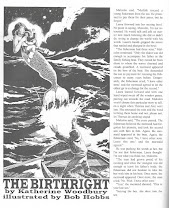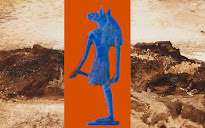I likely thought I had 11 brothers (I have 4); I did spend most of my youth around them. But in truth, I was attracted to the tale because the princess lives in a tree. About the same time, my mother read me My Side of the Mountain by Jean Craighead George, plus our family visited the Redwood National Park on one of our cross-country trips. I was enthralled by the idea of living in a tree!
For a long time, I contemplated going into the theater since those one-woman "plays" that I enacted while wandering around the house were all about action and dialog. I took playwriting courses in high school and college--and participated in drama clubs in both places.
But I didn't have the drive or the willing vulnerability. Just about everyone I knew in those courses and clubs who did want to go on to the big-time (and some did), were both incredibly fragile and incredibly competitive, which isn't the best combination for a happy life.
So I went the English major route instead, which turned out to be the best choice for me.
And I went the writing-stuff-down route, which was also a good choice.
Many of my first short stories were deliberate retellings or, rather, deliberate "what ifs." My first published story, "The Birthright" is based on the old story of a mermaid who extracts a promise from a fisherman and then curses his descendants: a son will be taken in each generation by a mermaid. My "what if?" was "what if one of those descendants actually wanted to go?" I still remember planning the story in a room in my grandmother's house in Pasadena over Thanksgiving while I was in college.The next published story was a take-off on Rumpelstiltskin. It annoyed me how many renderings of the tale painted the money-hungry king as purely greedy. What if he needed the money? What if his troops didn't have shoes? Or his peasants didn't have horses and plows or, for that matter, seeds? What if his tradesmen couldn't afford materials to make stuff? So I wrote a story where the king wants money and has to make an ethical choice in a situation where there are absolutely no winners. It's a horror story, which I always swore I wouldn't write, but eh--the "what if" led to a natural conclusion.
That tale shows up alongside a few others in Tales of the Quest, published through Peaks Island Press.
I later published a story based on the Trojan War, which background I recently used for my retelling of Herland. I then turned to the Old Testament for a story about the fall of Jericho followed by a story about Ezekiel and Jezebel in modern Portland and a sci-fi story using Ruth. (One of the first "plays" I acted out AND wrote down was based on Joseph of Egypt; I then encountered Joseph and His Brothers by Thomas Mann and decided I was in over my head--but hey, for years, I could recite all of Andrew Lloyd Webber's Joseph and the Amazing Technicolor Dreamcoat's lyrics.)
I have written more about that extremely enjoyable research here:







No comments:
Post a Comment